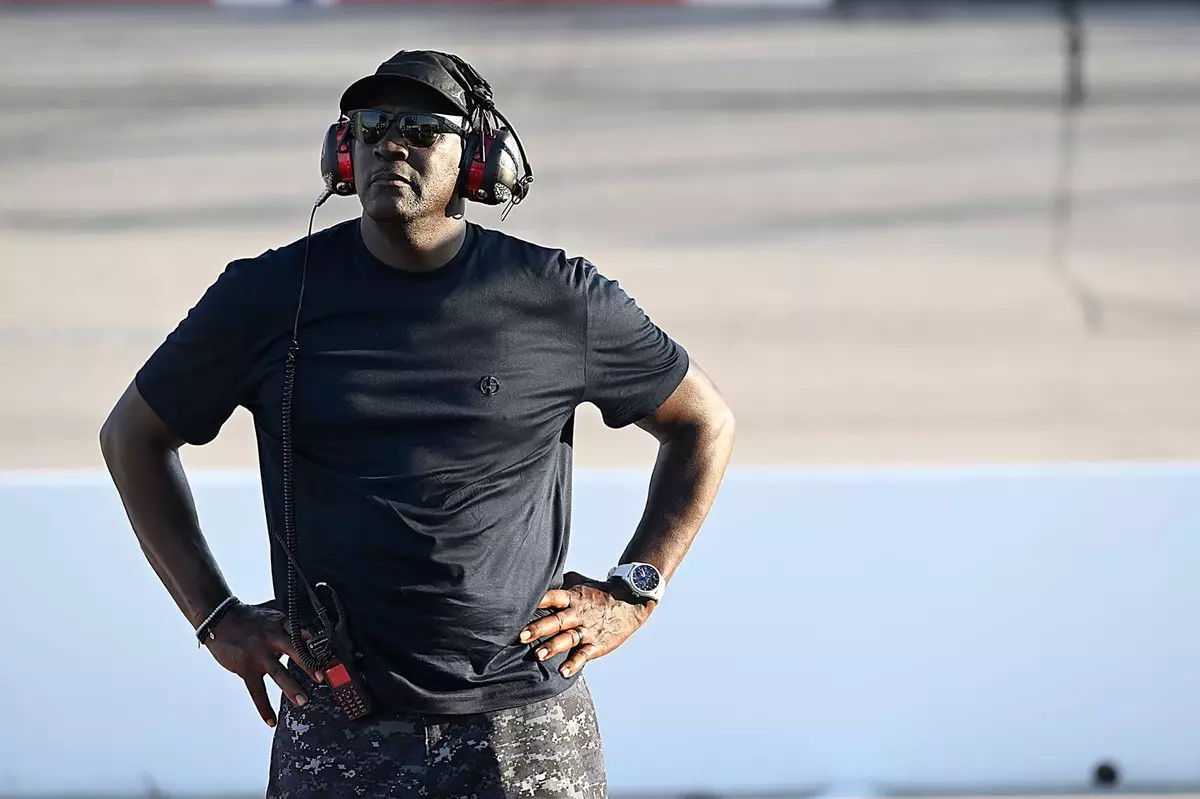In a groundbreaking move that could reshape the future of stock car racing, 23XI Racing and Front Row Motorsports have launched a lawsuit against NASCAR. This joint legal action is fueled by long-standing grievances regarding what the teams describe as “anti-competitive and monopolistic” practices within the racing governing body. Both teams have actively resisted signing NASCAR’s newly proposed charter agreement, which has been the subject of heated discussions for months. The lawsuit aims to challenge the overarching control that NASCAR, particularly the France family who has dominated the series since its inception, holds over the sport.
At the core of their argument is a call for transparency and fairness within NASCAR, which the teams believe is crucial not only for their own success but for the betterment of the sport as a whole. Their statement encapsulates a shared vision among the teams: “Together, we brought this antitrust case so that racing can thrive and become a more competitive and fair sport.” This declaration highlights the underlying belief that NASCAR’s current regulatory practices hinder competition and distort the essence of American auto racing.
The lawsuit details various grievances that the teams believe exemplify NASCAR’s anti-competitive behavior. Central to the argument is NASCAR’s tight grip on racetracks and exclusive agreements that limit competition. By acquiring a number of premier racetracks and imposing exclusivity contracts, NASCAR effectively curtails any opportunity for rival stock car racing events to emerge. This monopolistic strategy inhibits the ability of teams to expand their reach and engage in healthy competition, stifling innovation and growth within the sport.
Additionally, the lawsuit points out NASCAR’s control over parts and equipment. Teams are restricted to sourcing their racing components from pre-selected suppliers, effectively eliminating market competition and driving up costs. The implications of these actions ripple throughout the racing community, affecting not just team owners, but drivers, sponsors, and fans as well. As a result, the plaintiffs argue that NASCAR’s practices lead to an unequal playing field where only a select few benefit from the arrangement, while others struggle to survive.
After numerous attempts at constructive dialogue with NASCAR’s leadership, both 23XI Racing and Front Row Motorsports felt cornered into pursuing legal action. The months of discussions proved unfruitful, leading to perceptions of stonewalling from NASCAR’s management. The urgency of their situation is evident, as both teams have indicated plans to file for a preliminary injunction. This legal maneuver seeks to ensure participation in upcoming races under the newly proposed charter while simultaneously pushing forward with their antitrust claims.
As the legal battle unfolds, both teams aim to explore NASCAR’s practices in greater detail. They hope to unearth evidence of exclusionary tactics, which they believe serve only to insulate the organization from genuine competition. The stakes are high, with both teams seeking treble damages based on the restrictive nature of NASCAR’s previous charter agreement, highlighting the financial implications of the alleged anti-competitive practices.
Michael Jordan, a co-owner of 23XI Racing, has expressed his unwavering commitment to ensuring a level playing field in the sport. His sentiments are echoed by Bob Jenkins, the owner of Front Row Motorsports, who argues for an equitable system that rewards dedication and competitive spirit. They recognize that their efforts are not just about their teams; they represent a broader plea for reform that resonates with many stakeholders in racing.
Both team owners acknowledge that NASCAR’s current governance structure may not serve the best interests of the community. Jordan emphasized the need for change, asserting, “The way NASCAR is run today is unfair to teams, drivers, sponsors, and fans.” Jenkins added that a more balanced structure would enable all involved to achieve lasting success aligned with other major sports leagues.
The implications of this lawsuit extend beyond just the two teams involved. The outcome may set a precedent for how NASCAR operates moving forward. As discussions surrounding fairness, transparency, and competition continue to take center stage, it will be imperative for NASCAR leadership to reassess its strategies and governance to foster an environment where innovation and competition can thrive.
As the situation develops, one thing remains clear: the racing community is at a crossroads. The courage displayed by 23XI Racing and Front Row Motorsports to challenge the status quo could be the catalyst needed to usher in a new era of stock car racing—one that prioritizes fairness, transparency, and genuine competition for all involved. The fight for change has only just begun, and it will be fascinating to witness how it unfolds in the months and years to come.

